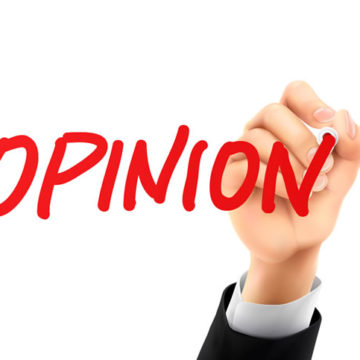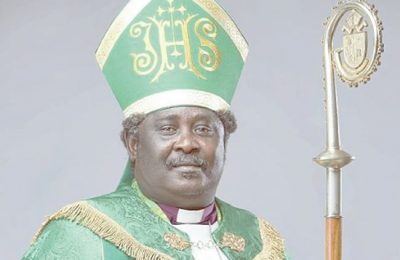
AS 2027 Nigerian elections approach, INEC can use Electronic transmission, calculation and electronic collation of election results to prevent fraud during election result collation. All results collation and calculation should be handled online and uploading of units result into IREV should be the final human effort. INEC should use technology to calculate and communicate election Results in order to eliminate bogus budget because INEC does not need wards and local governments result collation officers if technology is introduced to collate and calculate election results at the wards and local governments level. These technological reforms do not require INEC bogus budget to execute them. INEC should redesign IREV to calculate wards and local governments result state by state that have been uploaded on the IREV. Nigeria’s 2027 elections do not need wards and local governments returning officers because electoral fraud is now being committed at these levels. We need an enhanced IREV to handle wards and local governments result collation.
Some jurisdictions have experimented with communication systems that use computer-assisted technology, where the voting station official enters the election results on the IREV, telephone or similar device connected to a results-counting IREV. IREV can be connected to Internet and World Wide Web. As access to public computer networks increases, electoral officials may post future election results directly on the World Wide Web, or other interface on the emerging information highway. Already tested in some jurisdictions with varying degrees of success, election results can be posted instantaneously to a global audience using the Internet. These technologies will eliminate wards and local governments’ collation centres and consequently reduce INEC bogus budgets. A credible election does not depend on INEC bogus budget.

Enhancing provisions for the electronic transmission and collation of results present several considerable benefits to Nigeria’s electoral process. It would improve transparency by offering real-time updates and minimise the risk of manual errors or results manipulation during collation.
The success of any election depends on efficient planning and its conduct, i.e. accreditation, voting, counting, collation and results declaration. Each of these processes feeds into the next. Collation and declaration of results are critical stages in the election process. Failure to complete the collation and transmission of results in a quick, transparent and accurate manner can jeopardize public confidence and the credibility of the elections and will most likely affect whether candidates and political parties accept the final results. There are situations when the integrity of a well-run electoral process is severely compromised because of problems experienced during collation and declaration of results. Collation and Declaration of results are therefore critical moments that require proper care and attention. We experienced it during Edo 2024 governorship election.
Since INEC cannot make do with N40 Billion allocated in the 2025 budget, the federal government needs to look outside. A better service for much less can be obtained from nearby Ghana or even South African Electoral Commission. We should not use pride to continue to eat poison. The INEC under Mahmoud Yakubu is one of the worst and corruption laden organizations in the whole world especially when you consider the collation of results for Edo 2024 governorship election. INEC during Edo 2024 governorship election violated its own guidelines and Electoral Act 2022 concerning the collation of election results.
For an organization that conducts elections that are prone to overturn by courts to be asking for bogus funding should not be a consideration at a time we are struggling with debt repayment and debt servicing. Most of loans obtained to fund INEC’s failed eletronic voting frauds. I advise the FG to invite bids from other more efficient electoral commisions to compete for this service.
As Nigeria prepares for the 2027 elections, several key reforms have been recommended to improve the electoral process and address issues that have historically affected the country’s democracy. It is crucial to focus on the efforts of various stakeholders and the National Assembly to facilitate further amendments to the Electoral Act 2022. These amendments should incorporate lessons learned from previous elections, particularly regarding the use of technology in the electoral process, that are expected to enhance the electoral system’s efficiency and transparency.
One significant area of focus is enhancing provisions related to the electronic transmission and calculation of results, which could bolster public confidence by providing real-time and accurate outcomes. Enhancing provisions for the electronic calculation and transmission of results presents several considerable benefits to Nigeria’s electoral process. It would improve transparency by offering real-time updates and minimise the risk of manual errors or results manipulation during collation, as observed in recent elections like the Edo off-cycle governorship election. Integrating electronic transmission will expedite the announcement of results and reduce delays that often exacerbate tensions. Furthermore, electronic transmission would reinforce public confidence by ensuring accuracy and deterring fraud. It can be argued that the electronic transmission of results also aids evidence-based dispute resolution by creating verifiable digital records necessary for the transparent and efficient resolution of electoral disputes. As we advocate for these progressive reforms, it is equally crucial that these modifications to the electoral legal framework are completed swiftly to allow for testing these provisions in upcoming off-cycle elections before the general elections in 2027.
As the commission continues to deepen the use of technology in our elections, it is essential to prioritize the improvement of the Bimodal Voter Accreditation System (BVAS) and other technological innovations for voter accreditation and use of IREV for results management. This includes supporting the commission’s recommendation to move away from using Permanent Voter Cards (PVCs) for voter identification. Introducing biometric systems, such as the BVAS, enables voter verification without the need for physical cards. Since the BVAS stores records of voters’ biometrics, implementing biometric identification could streamline the accreditation and voting processes while also reducing costs associated with printing physical cards. Eliminating the need for PVCs could significantly decrease the financial burden of producing and distributing these cards, which is particularly relevant in Nigeria given the country’s economic challenges. Additionally, relying on biometric verification could minimize the risk of voter impersonation and manipulation, ensuring that only eligible voters can cast their ballots. This initiative will enhance transparency and address past concerns regarding the reliability of voter identification. IREV calculation of wards and local governments result will eliminate fraud at these levels.
READ ALSO: 2027: CSO tasks NASS, INEC on implementation of Uwais report








